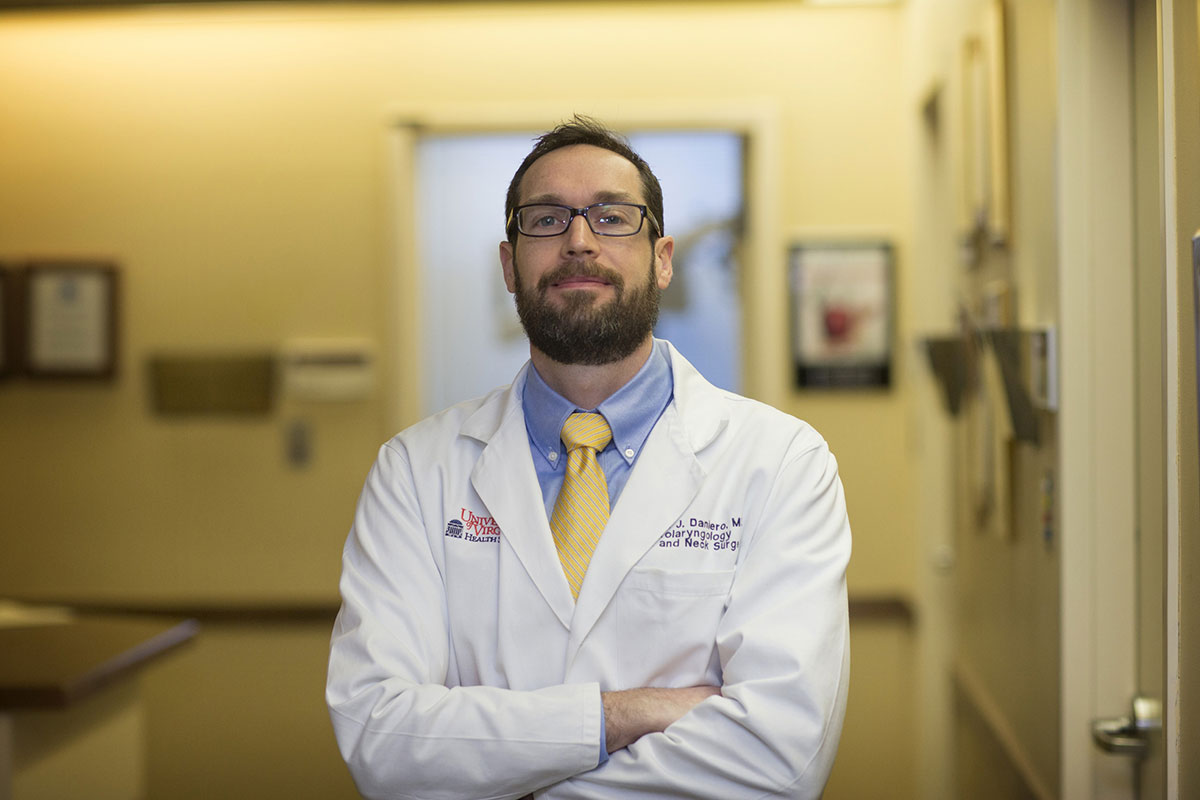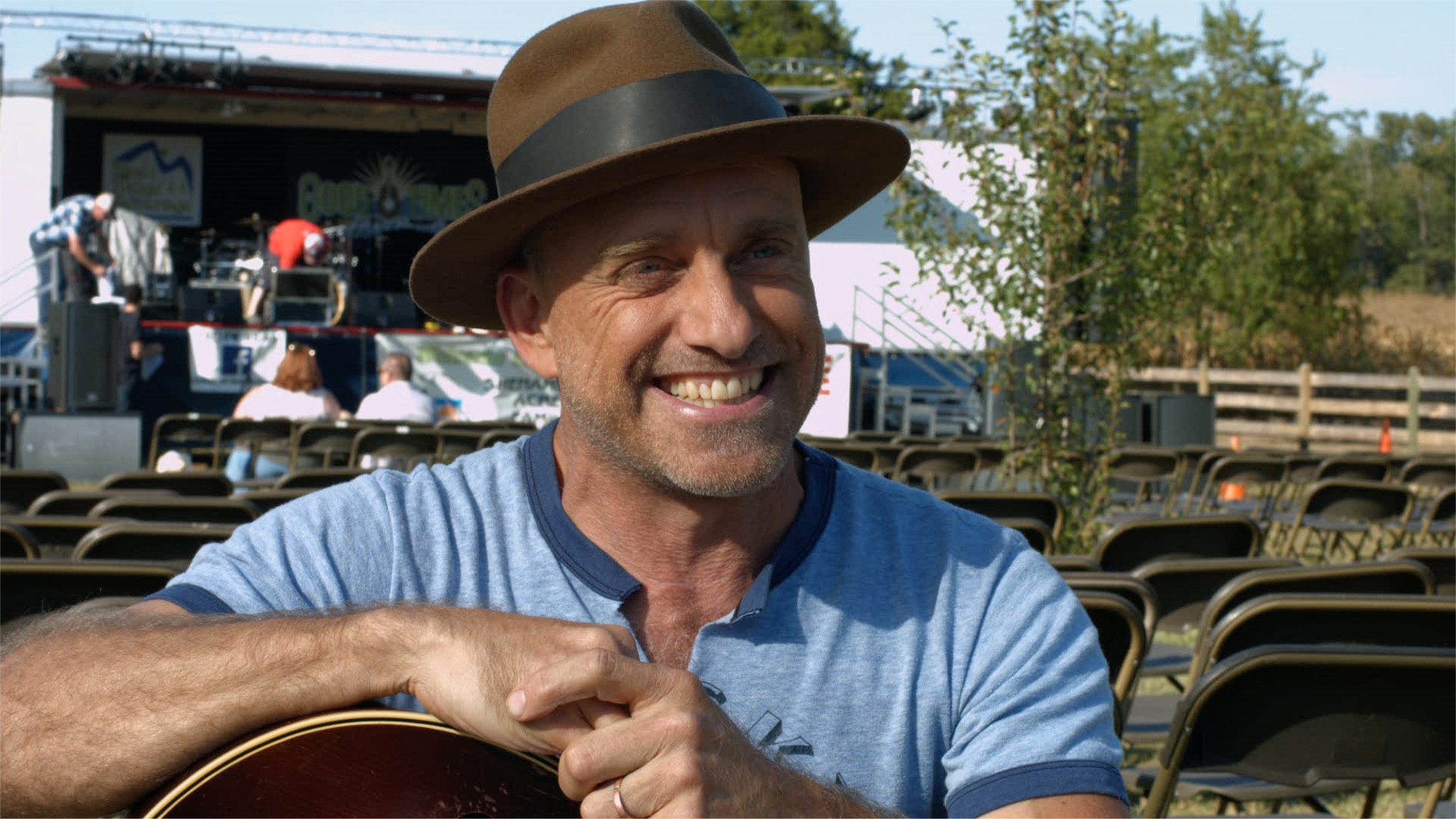David Sickmen performs nearly 200 shows a year with Hackensaw Boys, a bluegrass/rock band that was formed in Charlottesville. He’s been singing since the age of 18, but after making a career out of music, time began to take its toll on his vocal cords.
He made his way to the University of Virginia Health System, where he met Dr. James Daniero, an otolaryngologist and the head of the Voice and Swallowing Clinic.
“I lost all of my range,” Sickmen said. “I couldn’t hit any high notes. My voice was gravelly and hoarse. That’s good for the type of singing I do, but I couldn’t choose to sing any other way.”
His fellow band members liked the sound of Sickmen’s changing voice, but he was in pain and was even having trouble breathing.
Daniero discovered that polyps had formed on Sickmen’s vocal cords and used a minimally invasive procedure to remove them.
That was not unexpected. Eventually, nearly 75 percent of professional singers will have issues with their voice, Daniero said.

Dr. James Daniero, an otolaryngologist, leads the Health System’s Voice and Swallowing Clinic.
Daniero recently took some time to answer questions about Sickmen’s case.
Q. Do people generally notice when they have polyps on their vocal cords?
A. Most people who use their voice just for speaking can usually tolerate a fair amount of irregularity with their vocal cords and get by. When we deal with professional singers, they’re much more attuned to the subtleties and the changes of their voice – what’s limiting their range and pitch.
Q. What did you find when you first looked at David’s vocal cords?
A. Clearly, I knew his voice was hoarse, just even in a speaking voice. And the first sight we had of his vocal cords, we saw these enormous polyps. And I think I did tell him, at the time, I said, “Those are the largest polyps I have ever seen.”
Q. Were there risks to the surgery?
A. It was a little bit high stakes, and I told him, there are obviously risks doing the surgery. [I told him] I have to remove the polyps, and that will get him in the best situation for healing. Because this is what he does for a living, he needs his vocal cords. Once he got through [surgery], we had him gently reintroduce his speaking voice. We had him go to voice therapy sessions with the speech pathologist. I told him it was going to be a three-month recovery process before he could be out there professionally singing again – putting that extremely heavy load on his vocal chords again.
Q. After the surgery, was there a huge change in David’s voice?
A. This has been a progressive change in his voice over 10 years. Going back to listen to his music and his voice 10 years ago when he released some of his earlier albums – to what he’s performed recently. We were able to distinguish that he’s had a significant change in his voice.
Q. Have you heard David sing since the surgery?
A. I did, when he was playing locally here in Charlottesville. It was just fantastic to be able to see his vocal cords in action, doing what he needed to do with his new voice. His ability to change his pitch and put that emotion into his song – that was just wonderful gratification for me.
Media Contact
Article Information
February 2, 2016
/content/brand-new-voice-charlottesville-based-singer-gets-his-range-back-uva

